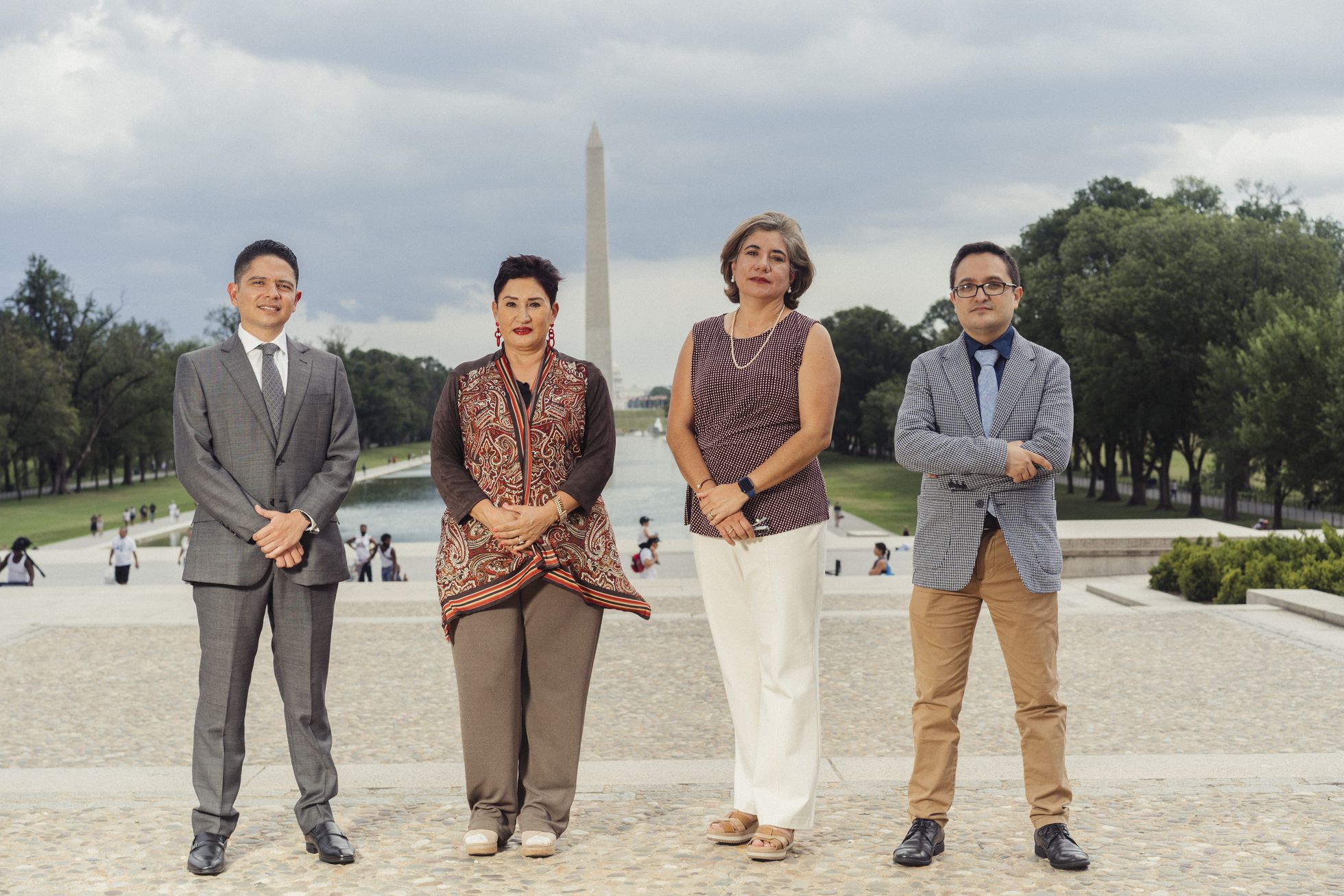The current state of Guatemalan politics strikes fear in its citizens and foreign policy analysts about the decline of democracy in the country, but first, it is important to understand that these issues began over 60 years ago when the U.S. instituted a coup on Guatemalan President Jacobo Arbenz, citing the threat of communism.
“The civil war which erupted as a result of American intervention stifled Guatemala’s economic growth, put an end to its political independence, and allowed a corrupt ruling class to dominate the country for its own political and economic gain”
The Panoptic
The country is reaching a more significant decline now, with President Alejandro Giammattei reappointing perhaps one of the most corrupt actors in the Guatemalan political sphere on May 16, 2022. Attorney General Maria Consuelo Porras has stirred Guatemalan citizens time and time again after years of corruption. President Alejandro Giammattei appointed her just months after the U.S. government accused her of dismantling any anti-corruption efforts formed against her. Shortly after her reappointment, the U.S. Department of State designated her and her family ineligible for entry into the United States under Section 7031(c) of the Department of State, Foreign Operations, and Related Programs Appropriations Act of 2022. Again, the government of Guatemala has long been in a constitutional regression, and the President and State Attorney Consuelo Porras is simply taking advantage of it now. Their corrupt tendencies however, threaten to push Guatemala to a point of no return.
Corruption is intertwined with Guatemalan Government
President Alejandro Giammattei has inspired apathy in citizens who have accepted corruption as a way of life. He is politicizing his executive power by appointing Consuelo Porras for a second four year term. “With this decision, the president shows that he has no interest in fighting corruption and gives Consuelo Porras free license to escalate her obstruction of legitimate cases and attacks on independent checks on power” (Delia Ferreira Rubio, chair of Transparency International). Attorney General Maria Consuelo Porras has demonstrated an abuse of power by putting her own agenda above democracy over and over again, namely by eliminating political competition through legislative measures and outright corruption. Under her office, prosecutors are exiled under immense pressure and threats. Just last year, former anti-corruption prosecutor Juan Francisco Sandoval was dismissed from his position at the Special Prosecutor’s Office Against Impunity (FECI) and was advised to flee the country just days after for his own safety. He eventually ended up in Washington D.C., where he joined several other Guatemalan jurists, judges, and prosecutors who fled the country for similar reasons.

The Attorney General’s office also uses democratic institutions to undermine democracy by utilizing non-political crimes to prosecute opposition. The former Guatemalan magistrate of the Constitutional Court was disqualified from renewing her position just last year. She claims that any actors investigating corruption in the Guatemalan government are persecuted through legal mechanisms. In her first four-year term, Consuelo Porras enacted criminal proceedings against at least six anti-corruption prosecutors, several journalists, and judges for crimes such as fraud, conspiracy, perjury, and more. This is particularly concerning because there seems to be no chance at accountability. This abuse of power can have devastating effects on democracy.
“Without space for independent actors to speak out, corrupt leaders consolidate control and eradicate democracy, transparency and the rule of law”
Delia Ferreira Rubio, chair of Transparency International
Past the Point of No Return
Research has shown that in states with widespread corruption, voters tend to perceive a lack of non-corrupt electoral options and therefore tend to vote based on other concerns. In other words, voters can hold skepticism on politicians’ abilities to handle corruption which in turn dissuades them from punishing corrupt politicians in the polls. This way, corrupt politicians continue to hold office with little to no accountability. There is no chance of horizontal accountability because the government is so unstable and corrupt in the first place, and vertical accountability must exist before the latter can develop. However, citizens alone cannot hold corrupt actors accountable through elections or political parties, especially because incentives to punish corruption are more limited than incentives to punish other issues electorally. It is necessary for the media and general public to take action through the spread of information, rallies, protests, etc.
Of course, NGOs could be helpful in circumventing the problem of cynicism amongst voters by aiding them in identifying candidates who are genuinely fighting against corruption. Furthermore, when electoral accountability fails, it is possible that credible institutions with the ability to punish powerful political actors accordingly would curb corruption and show voters that it is not something they have to just deal with. Still, cracking down on corruption could threaten to further weaken a failing democracy. A 2018 Vox article states that these attempts only motivate corrupt political actors who fear imprisonment and loss of job security to use their positions of power to shut down any anti-corruption legislation and anti-corruption investigations. Even then, President Jimmy Morales was actively seeking to shut down CICIG, an anti-corruption agency with allegations that they had been corrupted by Russia. Even more shocking, Guatemala’s past seven elected presidents have been subject to corruption charges, with no end in sight.
The situation is becoming hopeless, with a 25/100 on the Corruption Perception Index (CPI) in 2021. Transparency International labeled the country a “significant decliner”, because it has dropped eight points since 2012. Furthermore, President Alejandro Giammattei is polling below 30% among Guatemalan citizens who now believe corruption is the number one issue in their country, above street crime, poverty, and COVID-19. Currently, Attorney General Consuelo Porras is using a political system that was destroyed more than 60 years ago to her advantage, thwarting any anti-corruption investigations in order to gain power and satisfy her political allies. With a second term, she could further abuse her power to stifle dissent by using non-political crimes to arrest and exile prosecutors, journalists, activists, and more.
*Photo by Shalom de León, Untitled (Unsplash), Creative Commons Zero license.”

0 Comments